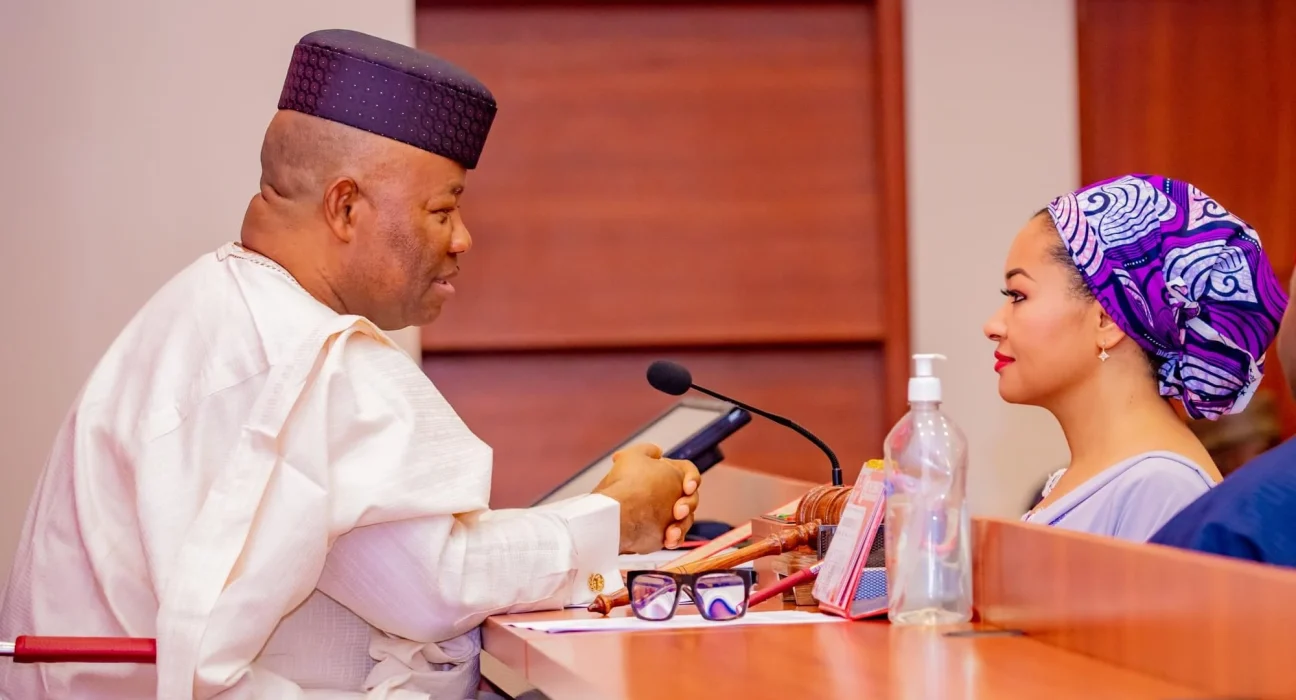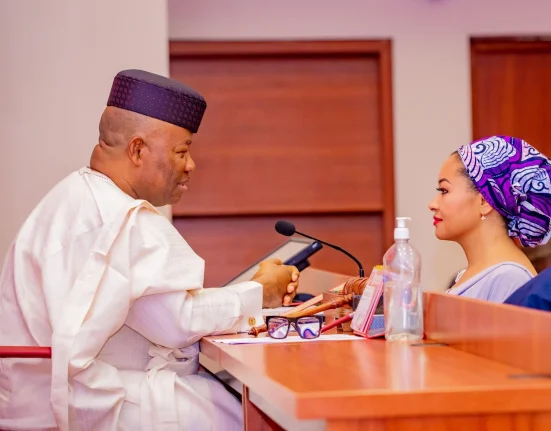The Socio-Economic Rights and Accountability Project (SERAP) has taken a significant step by suing Senate President Godswill Akpabio over the suspension of Senator Natasha Akpoti-Uduaghan, claiming that the action is “patently unlawful.” Filed at the Federal High Court in Abuja, the lawsuit aims to reverse the controversial six-month suspension imposed on Akpoti-Uduaghan, arguing that it violates her constitutional rights and deprives her constituents in Kogi Central of adequate representation.
The legal suit comes after SERAP’s formal call for Akpabio to immediately reverse the suspension, a request which was ignored, prompting the organization to proceed with litigation. In a press statement released on Sunday, Kolawole Oluwadare, Deputy Director of SERAP, confirmed that the suit challenges the legality of Akpoti-Uduaghan’s suspension and seeks to restore her to her legislative position. The case, identified as FHC/ABJ/CS/498/2025, also requests that the court issue an order of mandamus compelling Akpabio to reverse the suspension and restore the senator’s full legislative privileges, rights, and entitlements.
The suspension, which bars Akpoti-Uduaghan from participating in Senate activities and withholds her salary and allowances, was imposed after she allegedly “spoke without permission” and rejected a new seating arrangement within the Senate chamber. However, SERAP has vehemently argued that the action is a direct violation of Akpoti-Uduaghan’s fundamental human rights, particularly her right to freedom of speech as enshrined in the Nigerian Constitution and international human rights frameworks.
According to SERAP’s legal arguments, the suspension constitutes a disproportionate and unnecessary punishment, one that undermines not just Akpoti-Uduaghan’s rights but also those of the citizens of Kogi Central, who are denied proper representation in the Senate during the suspension. SERAP insists that the Senate, as a legislative body, has a responsibility to promote and protect human rights, and by acting in this manner, it is not only infringing on Akpoti-Uduaghan’s rights but also setting a dangerous precedent for other lawmakers who may feel pressured to silence themselves or face similar retribution.
The rights group also cited the Nigerian Constitution’s Section 39, which guarantees every citizen the right to freedom of expression, including the freedom to hold opinions and to receive and share information. The suspension of Akpoti-Uduaghan, SERAP argues, not only limits her right to speak freely but also infringes upon the constitutional rights of her constituents, who are deprived of the voice of their elected representative.
In addition to the legal arguments, SERAP has raised concerns over the broader implications of such disciplinary actions. The organization stressed that lawmakers, as public servants, should be held to a higher standard of accountability, especially when addressing political issues or engaging in debates that concern the public. The silencing of lawmakers through suspensions, particularly for the exercise of free speech, poses a serious threat to democracy and the health of political discourse in Nigeria.
SERAP’s lawyers, Kolawole Oluwadare and Mrs. Adelanke Aremo, filed the suit, highlighting that the suspension contravenes both national laws and international human rights treaties, including the African Charter on Human and Peoples’ Rights, to which Nigeria is a signatory. The charter guarantees the right of every citizen to participate in the governance of their country, either directly or through freely chosen representatives, which SERAP argues has been violated by the Senate’s actions.
The legal action has sparked significant interest in Nigerian legal and political circles, with many questioning the power dynamics within the Senate and the extent to which lawmakers’ rights can be curtailed under the guise of parliamentary rules. It has also raised broader questions about the extent to which political expression should be protected, particularly when it concerns members of the government or other public figures.
In response to the suspension, Akpoti-Uduaghan has maintained her stance, asserting that she will not be silenced or coerced into accepting what she considers an unjust decision. She has expressed her commitment to standing firm in her convictions and continuing to represent the interests of her people, despite the suspension.
The legal case is also seen as part of a broader struggle for transparency, accountability, and the protection of fundamental rights in Nigeria’s political system. Many see it as a landmark case that could set important precedents for how political freedoms are upheld in the face of government actions that may be seen as overreaching.
As of now, no date has been set for the hearing of the case. However, the legal community and Nigerian citizens alike will be closely watching the outcome, as it could have significant ramifications for the protection of free speech and the rights of elected officials to voice their opinions without fear of retribution. The case represents not just a fight for one senator’s rights but also a broader defense of democratic principles and individual freedoms in Nigeria’s legislative system.

